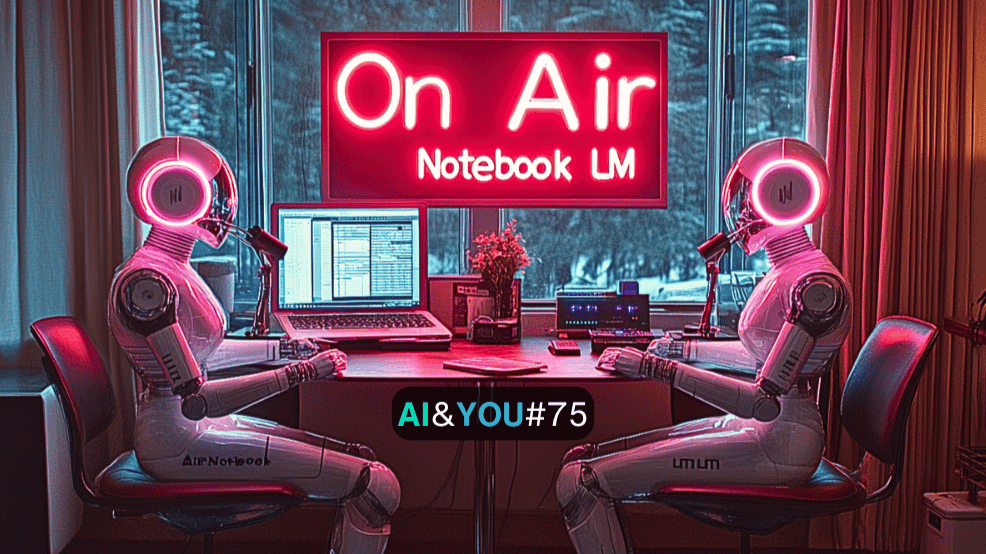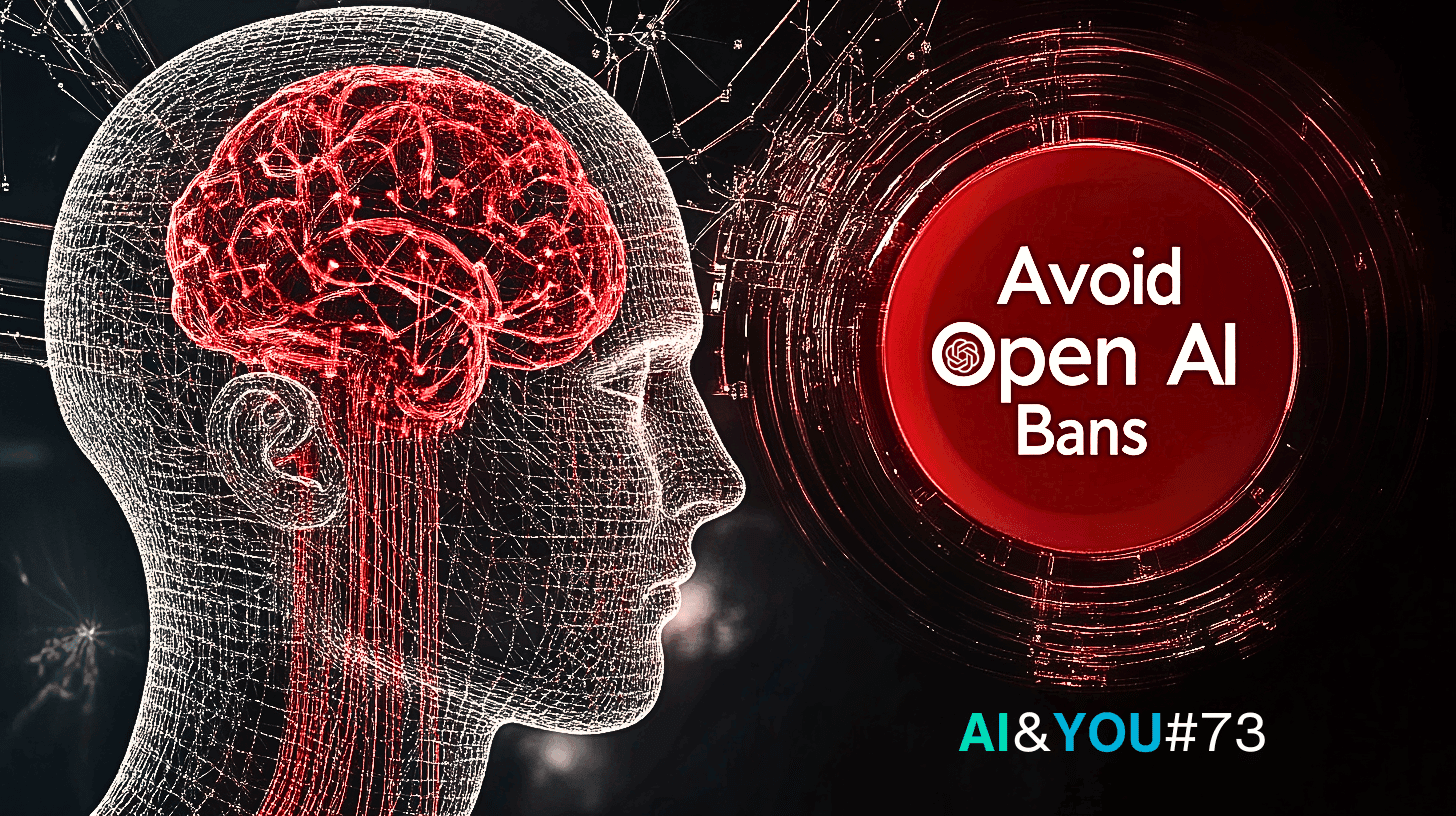AI&YOU#17: How we build “AI Expert Workers” for Institutions
This week, we give you a look behind the scenes at Skim AI and go through our process of building AI Expert Workers, which represent the next frontier in artificial intelligence.
When people say that AI will not replace people, but people using AI will replace people, they are imagining of a workforce that is aided by AI workers.
These AI personas are designed to understand, engage, and emulate the expertise required for specific tasks and industries, bridging the gap between human intuition and machine efficiency.
Whether it’s finance, education, healthcare, entertainment, or any other sector, AI Expert Workers stand poised to redefine how we work, learn, and interact with companies. If your business is looking to build and employ AI workers to assist employees and customers, schedule an intro call today.
- AI & YOU #17: How we build and deploy our “AI Expert Workers” for institutions
- Integration with University Data Systems
- The University-Wide Chatbot AI Persona
- Specialized AI Persona Instructors
- A Glimpse Into How We Engineer AI Personas for Education
- Deploying and Implementing AI Expert Workers Into Your Institution
- The Data Needed for an AI Expert Worker in EducationSomething Powerful
AI & YOU #17: How we build and deploy our “AI Expert Workers” for institutions
The world of education is changing, and AI is at the heart of this transformation. Schools and universities are now exploring the power of AI personas to enhance the learning experience.
These aren’t just simple chatbots; they’re "AI Expert Workers." Built using advanced prompt engineering, they’re designed to assist, guide, and support both students and educators.

Integration with University Data Systems
One of the standout features of an AI-generated persona is its ability to integrate seamlessly with a university’s existing data systems. This means they can pull relevant information to answer a wide range of student queries, from course details and faculty office hours to campus events and administrative procedures.
By having access to this vast reservoir of institutional knowledge, AI expert workers can provide accurate, timely, and contextually relevant responses, enhancing the student experience manifold.
But it’s not just about answering questions. An AI persona, built using advanced prompt engineering, can transform the entire educational experience. For students, it means a more personalized learning journey, with content and guidance tailored to their individual needs and preferences. For faculty, it offers a powerful tool to supplement their teaching, providing data-driven insights into student performance, automating administrative tasks, and even assisting in curriculum development.
The University-Wide Chatbot AI Persona
While chatbots have made their mark in various sectors, the realm of education presents unique challenges and opportunities. At Skim AI, we’ve reimagined the traditional chatbot, transforming it into a comprehensive digital ambassador for educational institutions and their data.

This goes beyond just another technological advancement; it’s a digital mirror reflecting an institution’s foundational beliefs, ethos, and traditions. Envision a digital space where every interaction echoes the institution’s character, where every student, faculty member, and staff feels the university’s essence in every online conversation.
Consider the potential of infusing the persona of a university mascot, incorporating familiar slogans, adhering to approved language, and tactfully avoiding sensitive subjects. To achieve this, it’s crucial to harness the power of negative instructions in ChatGPT during the prompt engineering process.
By integrating institutional data and documents, there’s an opportunity to craft a unique system. This could leverage the capabilities of Facebook’s open-source LAMA-2, for those with the GPU resources, or tap into OpenAI’s GPT API, bridged by a middle layer.

Specialized AI Persona Instructors
We don’t just stop at a university-wide AI persona. These personas can also be developed as instructors, or as extensions of human instructors.
Every academic department, from Engineering to Literature, has its own ethos, pedagogical approaches, and unique challenges. The Engineering department might grapple with explaining intricate technical concepts, while the Literature department delves into the nuances of prose, poetry, and critical analysis. These differences aren’t just subject-specific; they permeate the very fabric of how courses are taught and how students engage with the material.
Given this diversity, a generic AI tool would fall short. Institutions need specialized AI workers that can navigate the intricacies of each department and resonate with the teaching methodologies employed.
A Glimpse Into How We Engineer AI Personas for Education
In the realm of education, where every interaction can shape a student’s future, the creation of AI expert workers is both an art and a science. While we can’t unveil all the intricacies to develop personas, we’re excited to offer a high-level glimpse into how we create personas.
- Use Case and Role Definition: Our journey begins with defining the role and use cases for an AI worker, focusing on specific scenarios that shape the interaction and workflow. We delve deep into academic curricula, teaching methodologies, and institutional cultures.
Collaboration with Institutions and EdTech: Our collaboration extends beyond individual educators. We work closely with entire educational institutions and EdTech companies. Our focus is on creating AI personas that represent more than just a single teacher; we craft personas for entire methods of teaching, and specific roles like tutors, counselors, and more.
Decision-Making and Problem-Solving: At the core of our AI expert workers is the problem-solving methodology that dictates decision trees. By leveraging structured representations of knowledge and expertise, combined with vast experience datasets, our AI workers simulate, and even surpass, the expertise of their real-life counterparts.
Iterative Refinement and Data Integration: We deploy our AI in controlled environments, gather feedback, and make necessary adjustments. We also enable integration with university-specific data and documents, such as FAQs. By leveraging open-source models like Meta’s Llama, we ensure privacy for sensitive data.
Future-Ready Design: Our AI expert workers are designed to adapt to evolving educational landscapes and methodologies.
Deploying and Implementing AI Expert Workers Into Your Institution
The integration of AI Expert Workers into educational institutions is not just about introducing a new technology; it’s about weaving a digital assistant into the very fabric of the academic environment.The first step is to assimilate all the digital assets of the institution. This includes course materials, FAQs, administrative documents, student records, and more. By integrating this wealth of information, we lay the foundation for the AI’s deep understanding of the institution.With the data in place, we create a specialized AI system. This isn’t a one-size-fits-all solution. It’s a bespoke AI, designed to resonate with the ethos, values, and specific requirements of your institution.There are a couple of options when it comes to implementation:
- Leveraging Open-Source Solutions: For institutions equipped with the necessary GPU (Graphics Processing Unit) resources, we can utilize tools like Meta’s open-source LAMA-2.
Harnessing the Power of OpenAI’s GPT API: Alternatively, we can integrate the system with OpenAI’s GPT (Generative Pre-trained Transformer) API.
With the power of LLMs, our AI expert workers can interact with students and educators in a manner that feels genuine and personalized. They understand the nuances of human conversation, ensuring that every interaction is tailored to the individual, fostering a deeper connection and understanding within the educational community.Full blog: How We Build AI Expert Workers
The Data Needed for an AI Expert Worker in EducationSomething Powerful
The foundation of any successful AI Expert Worker implementation lies in the quality and comprehensiveness of the data it’s built upon. Core institutional data forms the bedrock of this foundation, providing the AI with the essential knowledge it needs to operate effectively within an educational setting.







